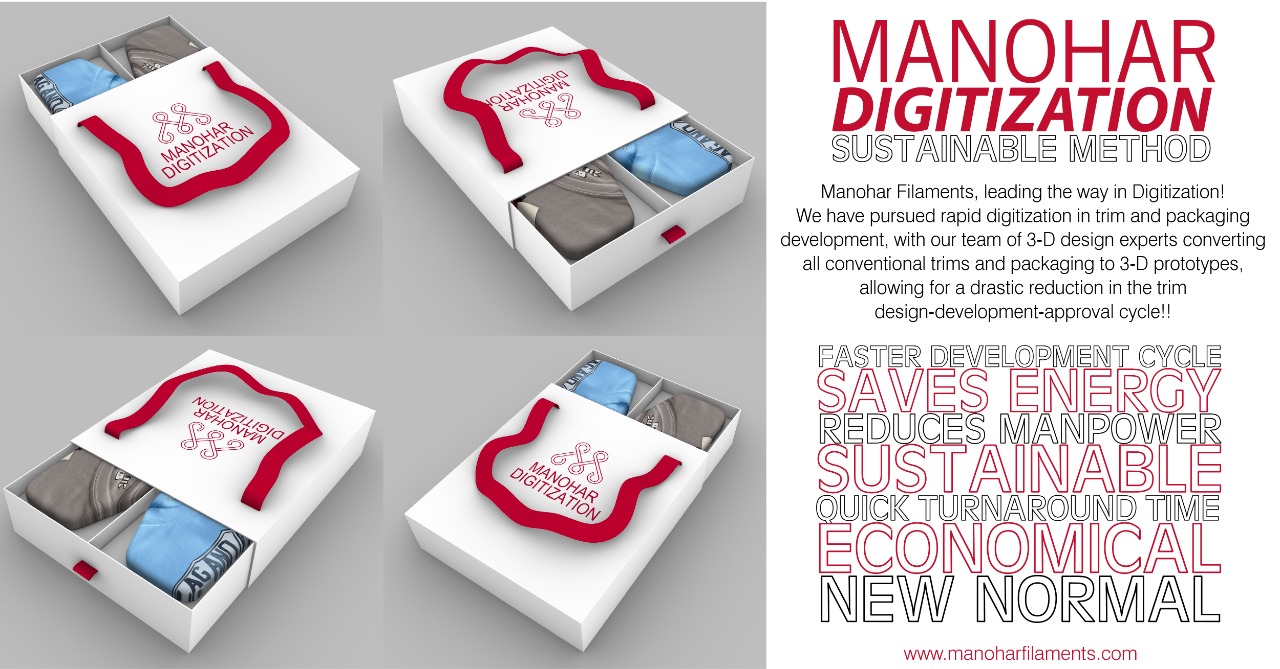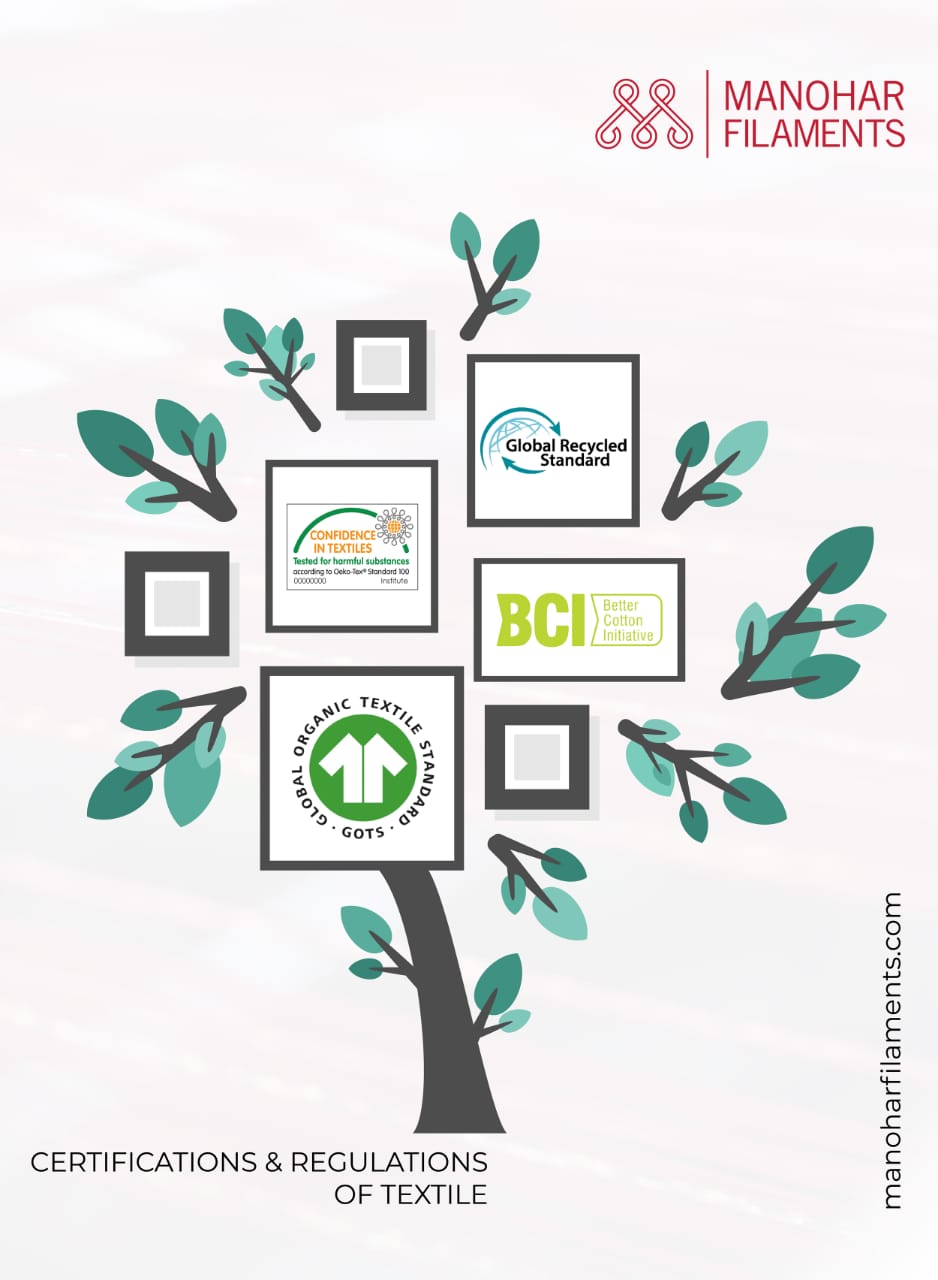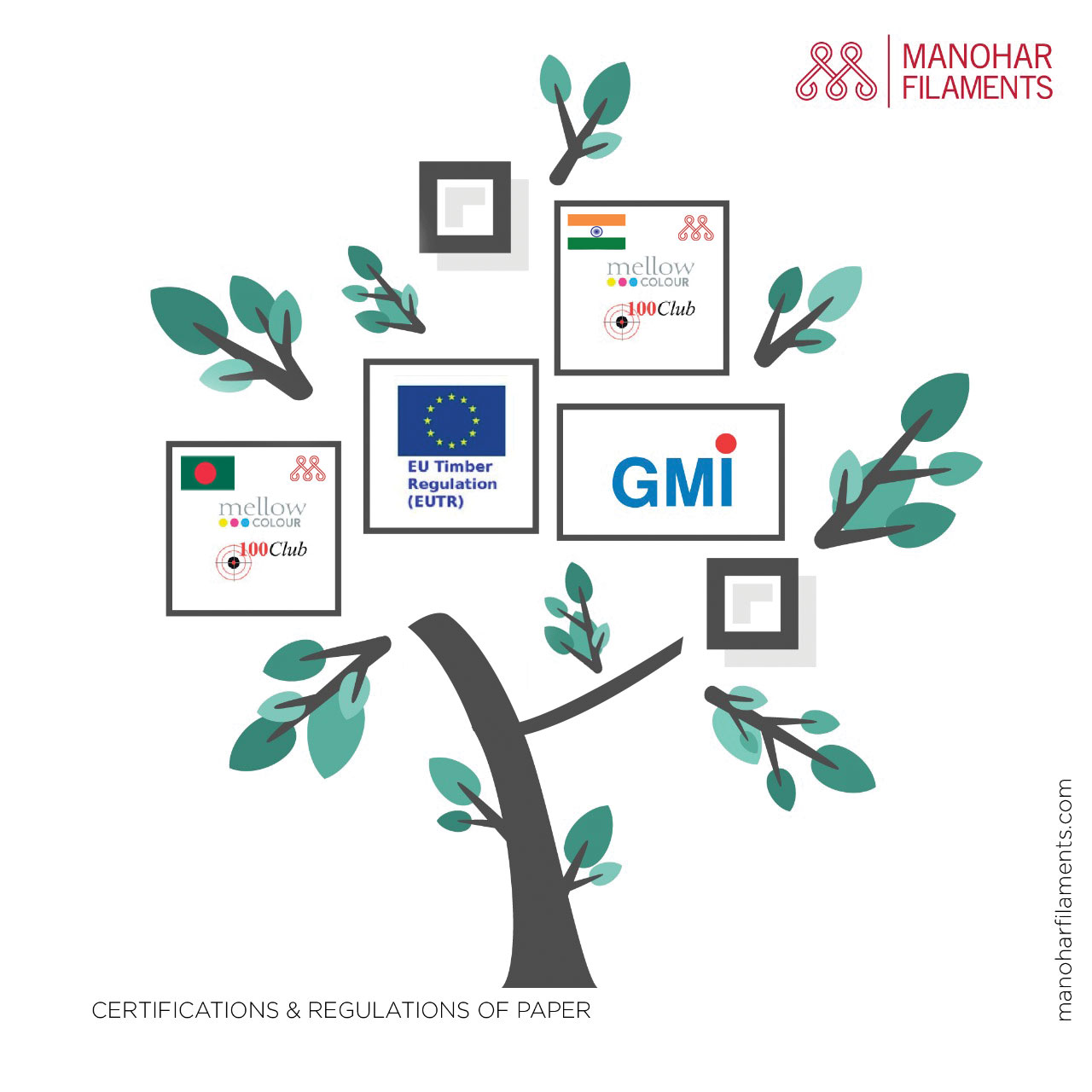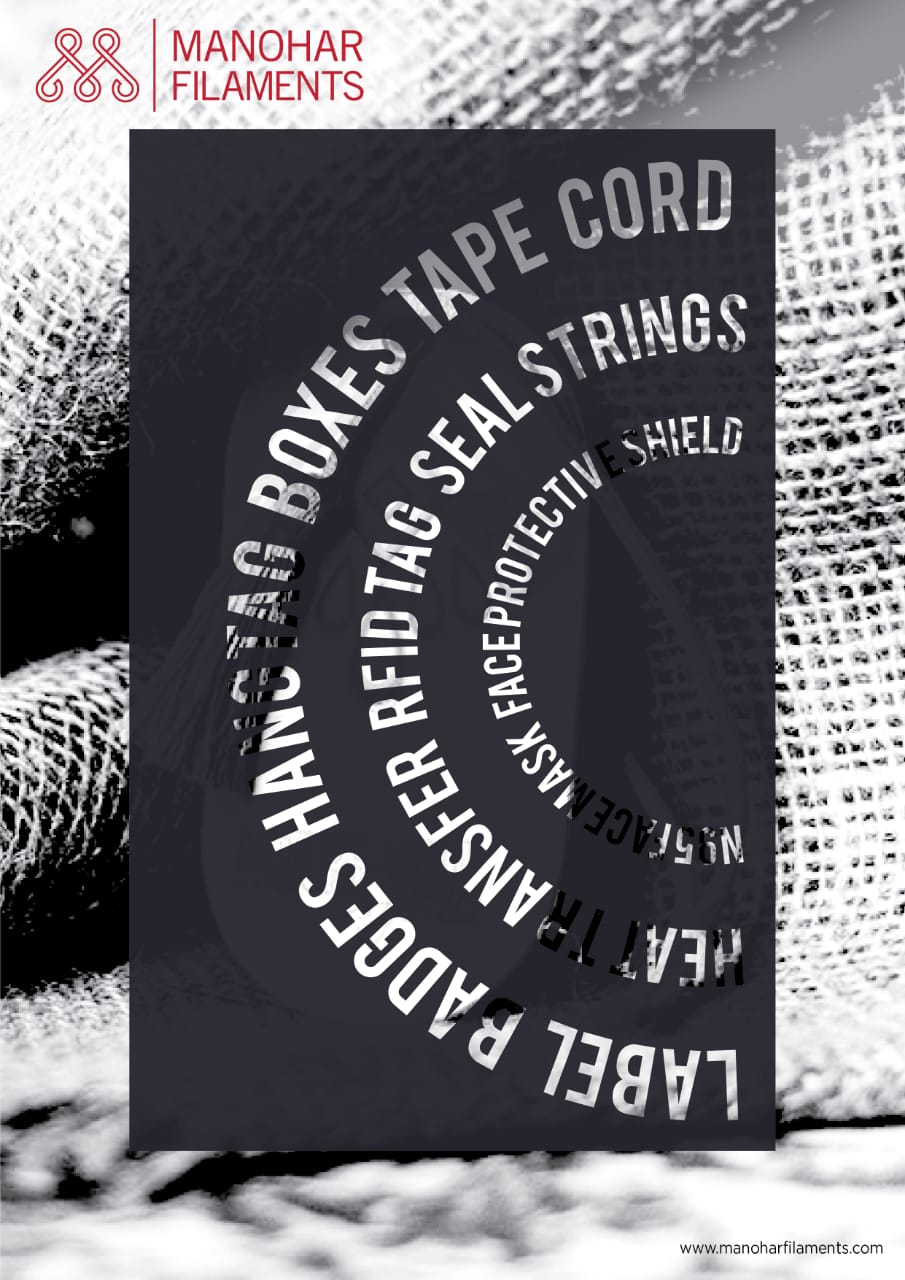Question- Mr. Amit, how do you think the Apparel industry has changed from the time your company began in 1986 to the current Pandemic affected global scenario?
Mr. Amit Jain- Well, that’s a great question, when we started our company, Manohar Filaments, the apparel industry especially exports were booming, the domestic market on the contrary was very small with limited ready-made garment brands, at the time, the main focus of Indian garment manufacturers was to meet the expectations of buyers and brands abroad, more so from a quality and lead time perspective, labels were often not the priority and sourced from smaller vendors without focusing on aspects like compliance and sustainability. However, this have changed dramatically, over the years, apparel manufacturing has become more scientific, large scale production of cost-effective garments and economies of scale came into the foray during nineties and the transformation then moved towards more organized value chains, focus shifted towards ensuring compliance and worker safety regulations and minimum wages started getting more protected. Cut to the present day, apparel sourcing has become heavily focused on creating more and more sustainable products, 3-D designing is reducing the time to market, cost and environmental impact of garment sourcing, plus there is a keen focus on trims and accessories becoming more sustainable, we as the leading manufacturer of trims in India, welcome these changes, we are fully dedicated to creating a more sustainable operation and supply products which exceed the expectations of our customers in terms of sustainability and their environmental impact. The pandemic, in particular has only expedited the inevitable I believe, it has accelerated digitization of value chains, increased focus on topics like environmental impact and helped supply chains become more resilient, now, I do not condone the negative impact it has had on the global economy, trust me we are one of the victims, but I also believe there are lessons to be learnt and opportunities to be had in the wake of this pandemic, we as a company have increased our efforts to digitise our front end and operations, diversified our manufacturing to increase production of Personal Protective Equipment Products and implemented and put into action a plan to make our traditional trim/packaging product offerings fully sustainable and yet cost effective in the next 3-5 years.
Question- Mr. Amit, you mention sustainability a lot, as an expert in fabrics and labels, what do you think is the impact of sustainability and what are you doing as a company particularly in fabrics and labels, from a sustainable product perspective?
Mr. Amit Jain- For me particularly, sustainability should be a part of the strategic focus of each and every company, I strongly believe that we need to leave a better world for the future generations and do all that we can to ensure our impact on the environment is more positive than negative and that we approach being more sustainable along a proper roadmap and with a firm belief that the goals we set as a company and as an industry will lead us to a better more circular economy. As far as textile products go, we as a company have done absolutely everything to ensure we are capable of and committed to manufacture and supply the best most sustainable products there are. We have ensured we as a company are affiliated to and certified by the leading sustainable accreditations and certifications, like OEKOTEX, GRS, GOTS and BCI, all ensuring the products we supply are not just sustainable and sourced through the right channels, but are meeting globally acceptable paradigm of sustainability and quality. To answer your question, over the past 30 years, the impact of sustainability has never been greater and we are quite proud to be able to participate and proliferate the sustainability goals of our partners through actions we take in making our raw material and finished product certifiably sustainable. We have developed a mechanism, where each and every development we do for a trim is looked at from an engineering and sustainability perspective, we are able to offer our partners options for their fabric tapes, patches, badges, woven and printed labels, at cost parity, in partially or fully sustainable options, without ever compromising on aesthetics, this is possible only because we have added the development and supply of more sustainable products as a key focus in our strategy as a group, the certifications I mentioned earlier, help us do so with clear and complete traceability.
Question- Mr. Amit, understood that sustainability is a priority for Manohar Filaments, but how exactly does a certification like GRS or GOTS or BCI help a buyer or retailer?
Mr. Amit Jain- Certifications of any kind, act as a testimony to compliance of set standards pertaining to performance and procedures, but I believe they are also indicative of the ability and commitment a supplier has to meet the requirements of their partner and customers. We have acquired global certifications precisely with this intent, to reassure our customers and partners on our commitment towards creating a more sustainable, affordable and high quality product offering, which is compliant with their requirements. If we look at the certification we have and understand them briefly, it would help you and our readers understand what I am talking about, GRS certification to start with, allows for brands/buyers and retailers to ensure that the textile products and labels being manufactured for their brands have the exact content of recycled raw materials as specified by them, it not only tracks the chain of custody and material movement in the supply chain, audits ensure compliance is not just documentary but at the grass root level, we are proud to have GRS certification and offer all types of recycled content products with full traceability to our customers. Other certifications like GOTS (Global Organic Textile Standard) deals with supply and creation of fabric and fabric products using organic material, our certification allows us to develop trims and labels which have fully organic content and the certification allows us to provide full compliance both towards supply chain requirements and social requirements needed to hold this prestigious certification. Similarly our affiliation with BCI ensures we source our cotton in the most ethical manner, ensuring farmers who toil to produce the cotton we use for manufacturing our products are fully protected and justly compensated for their efforts. We are one of the few suppliers in the label and trim industry to have the trifecta of textile related certifications, GRS, GOTS and BCI, the reason is not just business driven, rather driven by the fact that we are dedicated to a better world, and believe that we are changing it, one label at a time.
Question- Thanks for the explanation and explaining the relevance of textile related certifications, one final question, Mr. Amit, what is the message you would like to share from a sustainability perspective specific to Textile products? Mr. Amit Jain- Well, thanks for the question, and it has been an absolute pleasure answering questions pertaining to textile and sustainability, two of my favourite topics, I am glad if I have been able to educate and add value for our reader through the few thoughts that I have been able to share. For my parting thoughts, I would like to address and debunk the myth that sustainable and recycled products are more costly than products made from virgin product and they lack the aesthetics which can be achieved using virgin or non-eco-friendly products. Our team at Manohar Filaments has been able to assist a myriad of brands and buyers fight this myth, by developing textile products either made from recycled polyester or from organic cotton and other sustainable textiles and provide both cost parity and desired aesthetic for the overall brand message. I want to personally assure brands, buyers and retailers around the world that sustainability does not mean spending more and looking worse, it can in fact mean spending less and looking better, it is extremely important however, to involve experts like Manohar Filaments while developing these trim options, our creative and business teams can add tremendous value when it comes to designing accessories and trims which are fully or partially sustainable, cost effective and yet aesthetically at par or better than the initial concept, it is all about using the right product engineering, design and raw material options, please do not dismiss sustainable products on account of expense or aesthetics, talk to us and let us show you the way. Thanks!

Q&A Session with Mrs. Rashmi Sharma (Head IT) and Mrs....

Question- Mr. Amit, how do you think the Apparel industry...

Mr. Manish, good to have you answer few of our...

Interviewer- What do you think sets Manohar Filaments Apart from...